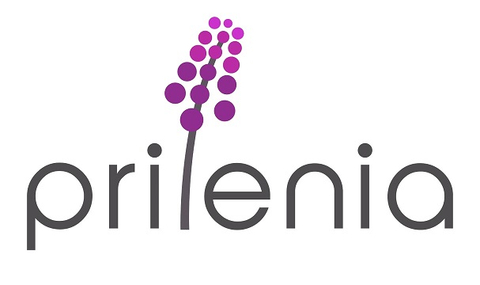Prilenia Announces Completion of Patient Enrollment Ahead of Schedule in the Pridopidine Arm of the HEALEY ALS Platform Trial
Prilenia Announces Completion of Patient Enrollment Ahead of Schedule in the Pridopidine Arm of the HEALEY ALS Platform Trial
-- Pridopidine is an oral, highly selective and potent Sigma-1 receptor agonist that has demonstrated a favorable safety and tolerability profile --
-- The HEALEY ALS Platform Trial is the first of its kind in ALS, designed to accelerate development of promising new treatments --
NAARDEN, The Netherlands--(BUSINESS WIRE)--Prilenia Therapeutics B.V., a clinical stage biotech company focused on developing novel treatments for neurodegenerative and neurodevelopmental disorders, today announced the completion of participant enrollment in the pridopidine arm of the HEALEY ALS Platform Trial. The trial is led by the Sean M. Healey & AMG Center for ALS at Massachusetts General Hospital and is designed to evaluate the safety and efficacy of multiple drug candidates in people with Amyotrophic Lateral Sclerosis (ALS).
The first participant in the pridopidine regimen - Regimen D (NCT04615923) was enrolled in January 2021, and since then, 163 participants have been enrolled ahead of schedule across 52 sites from the Northeast ALS Consortium (NEALS).
“We selected pridopidine to participate in the HEALEY Platform Trial out of approximately 30 investigational treatments due to its demonstrated potential to become a new therapy option for patients with ALS,” said Merit Cudkowicz, MD, MSc, Principal Investigator of the HEALEY ALS Platform Trial and the Director of the Sean M. Healey & AMG Center for ALS at Mass General. “Completing enrollment for the fourth regimen in the Platform Trial brings us closer to discovering new treatments for people living with ALS. The platform trial allows faster recruitment of patients because of shared placebo data across treatment arms.”
“We are honored to participate in the trial led by the Healey Center and look forward to our continued collaboration as we work towards our goal and hope to have a positive impact on the ALS community,” said Dr. Michael Hayden, CEO and Founder of Prilenia.
Pridopidine has received Orphan Drug Designation for ALS in the U.S. and Europe. In addition to the HEALEY ALS Platform Trial, pridopidine is currently being assessed in PROOF-HD, a global phase 3 clinical trial for Huntington’s Disease (HD). The trial completed patient enrollment ahead of schedule and with numbers over the enrollment target in late 2021. Prilenia recently received Fast Track designation for pridopidine for the treatment of HD.
About Pridopidine
Prilenia’s lead asset, pridopidine is a highly selective and potent Sigma-1 Receptor (S1R) agonist with an established safety and tolerability profile. Pridopidine is orally administered with therapeutic potential in HD, ALS and other neurodegenerative diseases and neurodevelopmental disorders such as Rett and Fragile-X syndromes.
Pridopidine is currently in late-stage clinical development for HD and ALS. Both trials, the global phase 3 clinical trial in HD (PROOF-HD) and the HEALEY Platform Trial in ALS are currently active and have completed enrollment.
Prilenia holds Orphan Drug Designation for pridopidine in both Huntington’s Disease (HD) and ALS in the U.S. and Europe. In addition, pridopidine recently received Fast Track designation by the U.S. Food and Drug Administration (FDA) for the treatment of HD.
About Prilenia
Prilenia is a clinical stage biotech startup founded in 2018 with the purpose of improving the lives of patients and their families by developing treatments for neurodegenerative and neurodevelopmental disorders. Prilenia is backed by a group of well-respected investors including: Forbion, Morningside, Sands Capital, Sectoral Asset Management, Talisman, Amplitude Ventures and the ALS Investment Fund. The Company is based in Naarden, the Netherlands, Herzliya, Israel and Boston, MA in the U.S. For more information visit www.prilenia.com and follow us on Twitter @prileniaTx.
Pridopidine for ALS
Amyotrophic lateral sclerosis, ALS (also known as motor neuron disease), is the most prevalent adult-onset progressive motor neuron disease, affecting approximately 20,000 people in the U.S alone. ALS causes the degeneration of motor neurons, resulting in progressive muscle weakness and atrophy and eventually death. There are currently two FDA therapies approved specifically for treating ALS—riluzole and edaravone.
Compelling preclinical data supports the potential use of pridopidine as a therapeutic for ALS. Pridopidine exerts its neuroprotective effects via activation of the S1R. Specifically, pridopidine improves BDNF (brain-derived neurotrophic factor) and GDNF (glial cell line-derived neurotrophic factor) axonal transport, restores synaptic activity and neuro-muscular junction (NMJ) function, and increases neuronal survival. In vivo, in ALS models, pridopidine reduces toxic protein aggregates and ameliorates muscle fiber wasting. Previously published clinical data indicating that S1R activation may enhance bulbar and speech function in ALS patients also suggests that S1R is a promising target for ALS therapy. The sigma 1 receptor has been genetically validated for ALS, as patients with mutations in this gene develop ALS.
Contacts
Marin Bergman
Ten Bridge Communications
818-516-2746
marin@tenbridgecommunications.com
